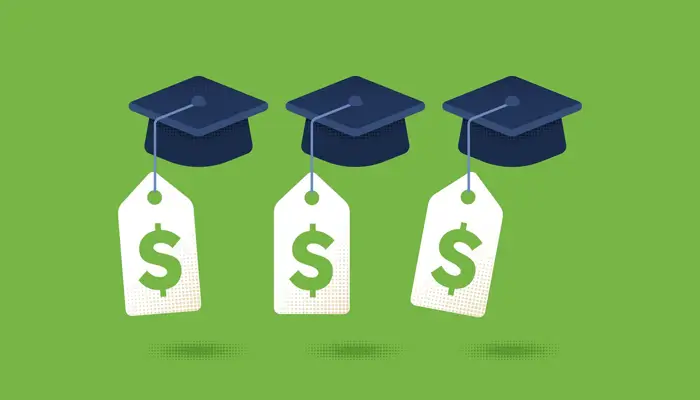Learn how to plan and manage education expenses
Anúncios
Preparing for the costs associated with education is a responsibility that both individuals and families need to handle. With the increase, in education expenses creating a financial plan becomes a vital step in getting ready for what lies ahead. Whether focusing on needs or long term academic aspirations it is essential to grasp the range of savings choices and financial assistance programs available. Instruments like 529 plans Coverdell Education Savings Accounts and Roth IRAs provide advantages that can be customized to fit financial circumstances and educational goals.
Managing education finances also requires an understanding of potential costs beyond just tuition fees. Expenses such as textbooks, accommodation, meal plans and charges for activities all contribute to the expenses of college life. Budgeting plays a role in ensuring that students can navigate their journey without being burdened by overwhelming debt. Students and their families need to explore tactics to handle both living costs wisely by borrowing sensibly and making informed choices about financial aid options.
Anúncios
Another important element of handling education expenses involves having knowledge. By developing a grasp of finance matters students empower themselves with the ability to steer clear of common money related pitfalls. Keeping track of expenses regularly understanding how student loans impact their finances and planning, for career opportunities are aspects of ensuring a financially stable educational path. By making plans and wise financial choices students can concentrate on their success while reducing the financial challenges that frequently come with pursuing a college degree.
Understanding Education Costs
When starting your journey it’s important to assess your finances to cover all necessary costs. Tuition fees make up a part of the commitment and require careful planning. Apart, from tuition students need to consider expenses like housing, food, transport and utilities which can vary based on location and lifestyle choices.
Anúncios

Additionally there are costs such, as textbooks, supplies, technology needs and possible extracurricular activities to account for. By planning and budgeting wisely for these expenses individuals can manage their finances better during their pursuits. Work towards achieving their educational goals smoothly.
Tuition and Fees
Tuition is the core expense related to education, representing the cost of instruction and coursework. Fees are additional charges for facilities and services like libraries, student gyms, and campus health services. Public medical schools average $52,483 per year, while private institutions may cost around $65,453.
Books and Supplies
Books and supplies figure into the annual cost of education, potentially adding thousands to the bill. Medical school students may particularly feel this pinch, with specialized textbooks and medical supplies required for their courses.
Accommodation and Living Expenses
Housing can vary widely, with on-campus options often differing from off-campus rental markets. Living expenses include costs for groceries, utilities, and other essentials. One should create a detailed list of these expenses to manage their budget effectively.
Transportation Costs
Whether commuting from home or traveling to clinical placements, transportation costs can include public transit fares, fuel, and maintenance for personal vehicles, or even flights for those attending school far from home.
Miscellaneous and Personal Expenses
A comprehensive budget also includes miscellaneous and personal expenses such as clothing, entertainment, and health insurance. These costs can fluctuate based on personal lifestyle and choices.
Each category brings with it specific considerations and varies greatly among different educational institutions and geographic locations. Proper planning for these expenses is crucial in managing one’s financial resources effectively.
Financial Planning for Education
Creating a plan, for education is crucial to ease the pressure of handling educational expenses. This involves taking an approach to budgeting, where people assess their financial status predict future costs and establish practical financial objectives. Effective budgeting techniques may involve organizing expenses into categories prioritizing necessities over desires and looking for ways to cut costs while maintaining quality.

Individuals can explore saving and investment options that align with their goals and risk tolerance levels such as 529 college savings plans, education savings accounts or investment portfolios. Additionally actively seeking scholarships, grants and financial aid opportunities can greatly reduce the strain of pursuing education. This might entail researching scholarships completing applications diligently and being proactive, in pursuing funding opportunities.
Budgeting for Education Expenses
When planning for education expenses it’s important to consider more, than tuition and fees. Room and board books, supplies and transportation costs should all be factored into your budget. A thorough budgeting approach helps students and families anticipate the cost of education.
Savings Plans and Investment Options
There are ways to save for education, with tax advantages;
- 529 Plans: These plans are offered by states and allow you to contribute a lot with earnings growing tax free for education expenses;
- Coverdell Education Savings Accounts: You can grow your money tax free and make tax withdrawals for educational costs;
- Roth IRAs: Although mainly used for retirement they can also be used penalty free, for education expenses.
It’s crucial to weigh the pros and cons of each option to pick the one based on your goals and financial situation.
Scholarships, Grants, and Aid
Financial assistance, through scholarships, grants and federal aid is a part of planning for finances since they do not need to be paid back. Possible sources include;
- Scholarships: Awards based on merit or financial need from organizations, colleges or community groups;
- Grants: aid based on need like the federal Pell Grant;
- Federal and State Aid: Various programs such as the Federal Supplemental Educational Opportunity Grant (FSEOG) for undergraduates with significant need.
It is recommended that students complete the Free Application for Federal Student Aid (FAFSA) early to determine their eligibility, for state aid programs. Moreover actively seeking out scholarships and grants can help reduce the cost of education.
Student Loans and Debts
Effectively managing education finances involves having a grasp of student loans and debts. It’s important to understand the differences, between private loans, including their terms, interest rates and repayment choices. Its recommended to research and compare loan options taking into account factors like interest accumulation, grace periods and available loan forgiveness programs for federal loans.

Additionally setting up repayment strategies is essential, for handling debt after graduation. This could mean looking into income driven repayment plans consolidating loans or refinancing to reduce interest rates and simplify payments. Furthermore it’s important for individuals to create a plan that prioritizes debt repayment while also managing other financial obligations effectively.
Federal and Private Student Loans
Government backed student loans come with set interest rates, payment plans based on income and chances, for loan forgiveness. These loans usually don’t need credit checks or co signers. In contrast private student loans are provided by banks, credit unions and private lenders. They might have fluctuating interest rates and stricter repayment terms. Generally they require a credit check. May ask for a co signer.
Loan Repayment Strategies
Managing student loan debt effectively relies heavily on the repayment strategies employed. When it comes to loans borrowers have options, at their disposal, such as the Standard Repayment Plan designed to clear debts within a decade or the Extended Repayment Plan that extends the repayment period to 25 years. As for loans refinancing offers a solution, by securing reduced interest rates and potentially decreasing monthly payments.
Dealing with Debt Post-Graduation
After completing their studies students usually have a period of time before they need to start paying back their student loans. It is important for them to create a plan that includes budgeting for loan repayments. Graduates should take the initiative to look into options, for repayment support, such as consolidating or refinancing loans and programs that offer loan forgiveness for individuals, in specific careers or circumstances.
Effective Management of Education Expenses
Managing education expenses effectively requires an approach that includes planning, wise decision making and the use of, up to date tools and resources. To begin with individuals need to engage in planning by evaluating their current financial status setting achievable goals and predicting future expenditures. This entails creating a budget that covers tuition fees, housing costs, books, transportation and other miscellaneous expenses.

Additionally making informed choices is crucial when dealing with the realm of educational costs. It is essential for individuals to research and compare institutions while taking into account factors, like tuition fees available financial aid options and potential outcomes. Furthermore taking advantage of tools and technologies can simplify the financial planning process. Enhance resource management.
Cost-Saving Tips and Tricks
In order to lower education expenses it’s important for people and families to pinpoint areas where they can cut costs without sacrificing the quality of education. One way to begin is, by comparing schools to discover the cost effective option. Students should explore scholarship and grant opportunities as these can greatly reduce the strain of education. Opting for owned textbooks or utilizing library materials are also effective ways to save on educational resources.
Making Informed Financial Decisions
When dealing with the costs of education making informed financial choices can have an impact. Developing a strategy that spans the entire length of the educational journey can offer clarity and empower individuals to manage expenses effectively. This plan should encompass all expected costs, like tuition fees, housing, textbooks and living expenses. It’s crucial to weigh these against sources of income such, as savings, scholarships and part time jobs.
Technology and Tools for Financial Management
Using technology effectively can make managing education costs easier. Different financial tools and software are created to help with tracking budgets and predicting expenses. These resources assist in creating a budget keeping tabs on spending and making changes when needed. They also come with functions, like automated reminders, for payments which can prevent fees and keep your financial standing solid.





